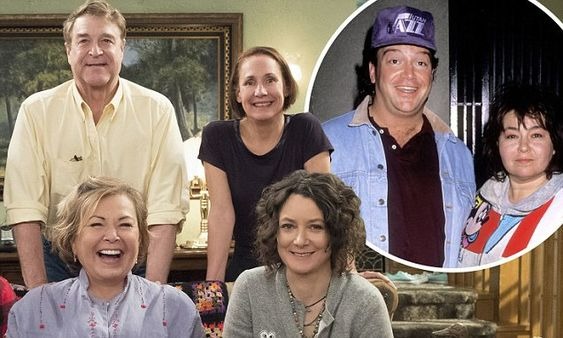
Tom Arnold calls ex-wife Roseanne Barr a ‘Trump-loving troll’ in a review of ABC’s Roseanne reboot…after being fired from the original show in 1994
Tom Arnold Reflects on the Roseanne Reboot: A Complex Legacy
Tom Arnold, who was once married to Roseanne Barr and played a significant role in the original Roseanne sitcom, has shared his thoughts on the highly anticipated reboot set to air on March 27. The actor, writer, and producer, who started as an audience warm-up guy and worked on the show for more than five years, recently critiqued the reboot in a review published by The Hollywood Reporter.
A Journey from Love to Critique
Arnold and Barr were married for four years before he was fired from the show in 1994, marking a tumultuous period in both their personal lives and the show’s history. In his recent review, he reflected on the dramatic changes that have occurred since the original series ended in 1997. “The world is different now than when Roseanne and I went to Bill Clinton’s inauguration in 1992,” he noted, illustrating how the cultural landscape has shifted over the decades.
When news of the reboot broke, Arnold expressed mixed feelings. “I was happy for Roseanne and the other actors,” he wrote, but he also recognized that the new show’s success hinged on one crucial question: “Who will Roseanne Conner be in 2018?”
The Polarization of Roseanne Barr
Arnold’s critique delved into the complexities surrounding Barr’s public persona today. Once celebrated as a feminist and a voice for working-class Americans, Barr’s recent political alignment has generated significant controversy. Arnold pointed out that she has transformed into a “far-right Trump-loving troll,” which complicates her character’s legacy and the reboot’s potential reception.
He highlighted the challenge the writers face in redefining Roseanne Conner for a modern audience. The character, who once embodied a relatable, working-class mom, now has to contend with Barr’s polarizing views that have alienated many former fans.
The Impact of Cultural Shifts
Arnold’s insights underscore the broader cultural shifts that have taken place since the original series aired. The political climate in the U.S. has become increasingly divided, and the reboot must navigate these waters delicately to resonate with viewers. As Arnold noted, “today’s Roseanne Barr is more polarizing than ever,” suggesting that the show’s creators have a steep hill to climb if they hope to recapture the magic of the original series.
Conclusion
Tom Arnold’s reflections on the Roseanne reboot reveal the intricate relationship between the past and present. While he expresses support for Barr and the cast, he also raises critical questions about how to reconcile the character of Roseanne Conner with the complexities of Barr’s current public persona. As the reboot prepares to debut, it remains to be seen how audiences will respond to this new iteration of a beloved character and whether it can bridge the gap between nostalgia and contemporary relevance.
